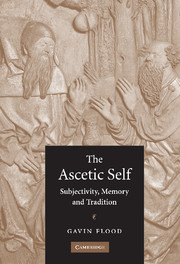Book contents
- Frontmatter
- Contents
- Preface
- Acknowledgements
- 1 Setting the parameters
- PART I THE ASCETIC SELF IN TEXT AND HISTORY
- 2 The asceticism of work: Simone Weil
- 3 The asceticism of action: the Bhagavad-gītā and Yoga-sūtras
- 4 The asceticism of action: tantra
- 5 The asceticism of the middle way
- 6 The asceticism of the desert
- 7 The asceticism of love and wisdom
- PART II THEORISING THE ASCETIC SELF
- Bibliography
- Index
2 - The asceticism of work: Simone Weil
Published online by Cambridge University Press: 16 November 2009
- Frontmatter
- Contents
- Preface
- Acknowledgements
- 1 Setting the parameters
- PART I THE ASCETIC SELF IN TEXT AND HISTORY
- 2 The asceticism of work: Simone Weil
- 3 The asceticism of action: the Bhagavad-gītā and Yoga-sūtras
- 4 The asceticism of action: tantra
- 5 The asceticism of the middle way
- 6 The asceticism of the desert
- 7 The asceticism of love and wisdom
- PART II THEORISING THE ASCETIC SELF
- Bibliography
- Index
Summary
You may be weaker than the whole world but you are always stronger than yourself. Let me send my power against my power.
Gillian RoseI choose as my starting-point the twentieth-century religious and political philosopher Simone Weil. Why choose to begin with Weil? For three reasons. Firstly, in Weil's work we have a sense of self and subjectivity that speaks directly to us and reflects an existential sense of self and political individualism that resonates with late modernity, even though she advocates a destruction of the ego. Secondly, this subjectivity is linked with ways of thinking, acting and dying that can be characterised as ascetical in so far as she performs the ambiguity of the self and responds to the memory of tradition. Thirdly, Weil can be seen to stand at the end of a tradition of Christian renunciation and asceticism and provides an access point for our understanding of that tradition. Understanding a sense of religious subjectivity with Weil allows us to develop a strong form of the thesis of the ascetic self in relation to tradition. It furthermore provides us with an entry point into the world of South Asian reflection, separated from our twentieth-century example by possibly a thousand years and by different locations and languages. As future chapters unfold, the contrast between the Indian and European accounts will bring into focus the centrality of subjectivity in any description of asceticism.
- Type
- Chapter
- Information
- The Ascetic SelfSubjectivity, Memory and Tradition, pp. 37 - 63Publisher: Cambridge University PressPrint publication year: 2004



